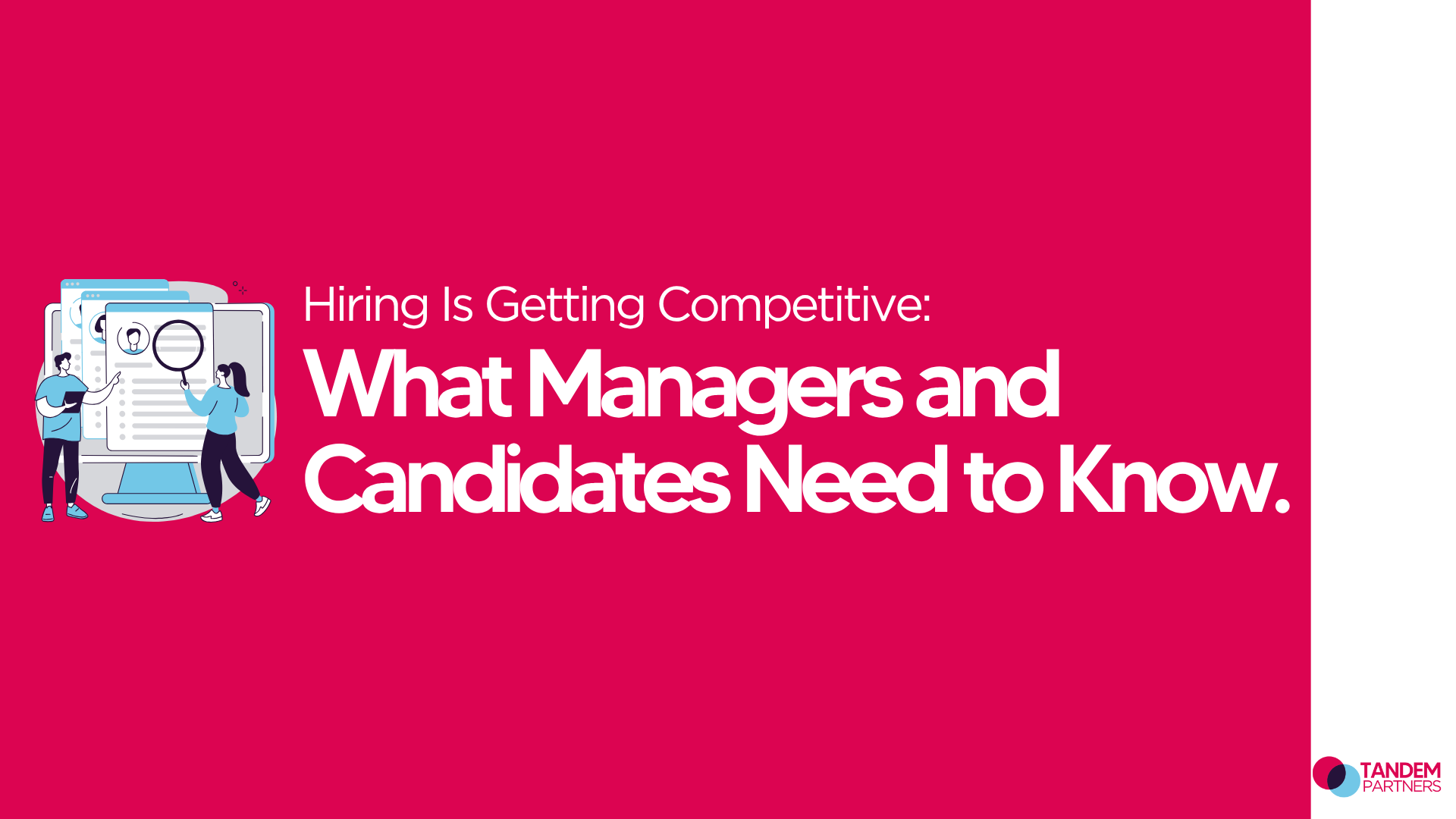Hiring Is Getting Competitive: What Managers & Candidates Need to Know
Hiring Is Getting Competitive: What Managers and Candidates Need to Know.

The market is picking up for early career HR talent and fast. Great news, right? Yes… but it also means that attracting good talent is more competitive than ever. Being the employer of choice now takes more than just a decent salary package.
Here’s what I’m seeing: candidates are moving through multiple recruitment processes at once. By the time you’ve finished your interviews, there’s a good chance they’ve already got one, maybe even two other offers on the table.
Your hiring process shapes your employer brand. Especially in HR, people talk. It’s a close-knit profession, and candidates will share both the positive and not-so-great parts of their experience. A clunky or cold process doesn’t just risk losing the candidate, it can damage your reputation in the market. On the flip side, a thoughtful, respectful, and engaging process (even when the outcome is a “no”) builds trust and leaves a lasting impression that spreads in all the right ways.
That means every single touchpoint matters, from how warm and engaged you are on the screening call, to how they see you interact with your team when they walk through the office for a second interview. Candidates are paying close attention. These small moments help them weigh up which opportunity feels right when decision time comes.
And to be honest, what a brilliant position to be in as a candidate. But for hiring managers, it begs the question:
How do you stand out and make sure the right person chooses you?
A few things to consider:
- Show them how you’ll invest in them. They want to know how you’ll support their growth, not just in onboarding but long term. Make time in the interview to talk about your leadership style, how you coach, and how you’ve supported others in the team to step up.
- Talk about real progression, not just buzzwords. Share examples of team members who’ve grown, moved into new roles, or been promoted. Candidates are checking your LinkedIn too, they’re looking for tenure, internal moves, and genuine career stories. Share those success stories with them.
- Be transparent about flexibility. Most candidates understand that learning and connection happen in person, especially early on. But they still want to know they’ll be trusted, if they need to duck out to pick up their kids, they’ll make it work. Trust and flexibility go hand in hand.
- Get curious about their career goals. Ask them what’s missing in their current role. What do they really want next? The deeper you go, the better you’ll understand if you’re actually the right fit for each other and the more likely they’ll feel understood.
- Offer constructive feedback, even if it’s a no. Not every candidate will be the right fit, and that’s okay. But vague feedback like “not the right fit” doesn’t help anyone. Specific, honest feedback is gold to candidates, it shows respect, and it helps them grow. So many times I’ve delivered feedback that’s been genuinely appreciated, even when it wasn’t easy to hear.
- Make your offer count. I get it, budget constraints are real. But a compelling offer isn’t just about salary. It’s about making the candidate feel like you see them, value them, and are excited about what they bring to the team. Tell them! Share what stood out in their interview, how you see them growing in the role, and what you’re looking forward to about working together.
And for candidates torn between two offers?
If you’re in the fortunate position of having two offers on the table, firstly, congrats! You’ve clearly made a strong impression. But I get it, the decision can still feel overwhelming. Here’s what I often tell candidates I work with when they’re weighing things up:
- Go beyond the salary. Of course pay matters but so does how you’ll be supported, developed, and treated day to day. Ask yourself: Who’s actually going to invest in me long-term?
- Think about the people. who made you feel comfortable and heard during the interview process? Did you get a sense of genuine interest and warmth from the team? That’s usually a good indicator of what the culture is really like.
- Consider flexibility. What does flexibility really mean to each employer? Is it just a buzzword, or have they shown you how they support work-life balance in a practical way.
- Ask the tough questions. It’s okay to ask: What does success in this role look like? How often do you promote from within? What support is in place for learning and development?
- Trust your gut. Often, you already know what feels right, it’s just about getting clear on your non-negotiables and long-term goals.
Remember, this decision is about you, your growth, your values, and your career. Don’t be afraid to take the time you need, ask for what’s important to you, and have honest conversations along the way.
Refine results
Keywords
Contact Us
Categories
News
HR Leader Series


